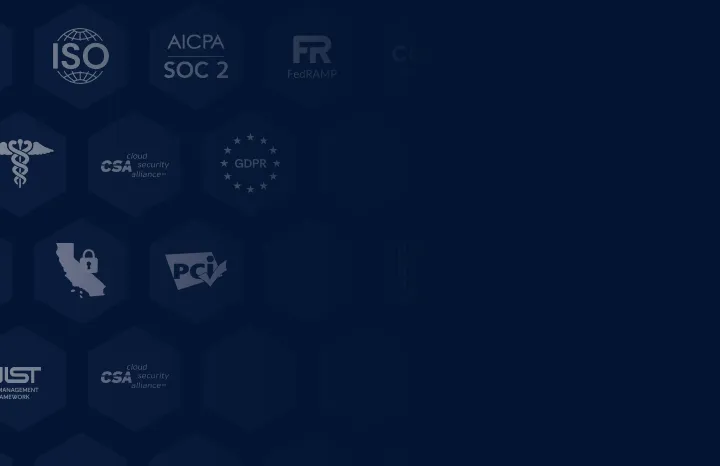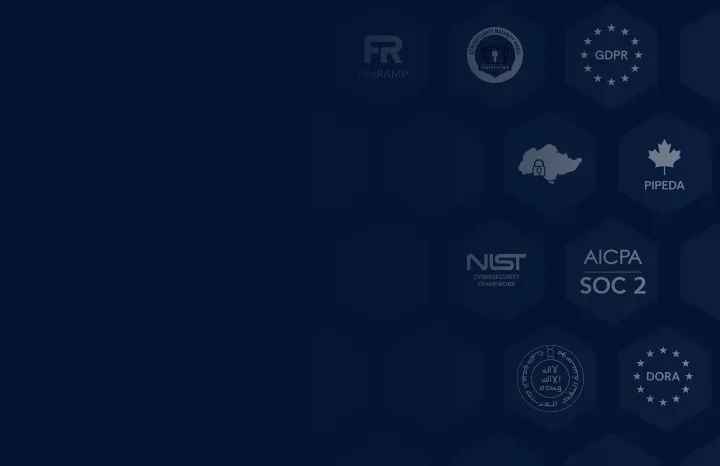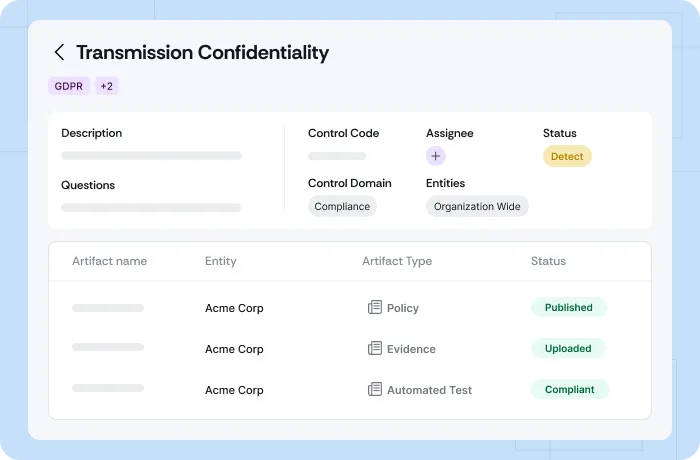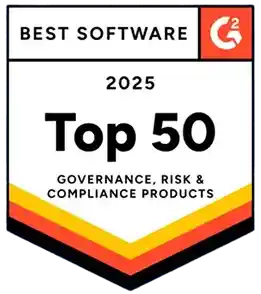
Scrut helped our company navigate the complexities of SOC 2, ISO 27001, HIPAA, GDPR, CCPA, and PCI compliance with ease.
Get automated controls, real-time compliance tracking, and expert-backed guidance in one platform. Avoid GDPR penalties and stay compliant in the long run.




The General Data Protection Regulation (GDPR) is the European Union’s data privacy law, designed to protect the personal information of EU residents.
It applies to any organization that processes data belonging to individuals in the EU region. No matter where the organization is based.

GDPR violation fines are up to 4% of global annual revenue or €20 million. Safeguard your reputation by monitoring privacy and security requirements.

Ensure your employees understand privacy controls and data protection measures for GDPR compliance.

Reuse controls and evidence across all standards. Minimize duplication, reduce effort, and accelerate compliance.

Get our in-house GDPR compliance experts to build an action plan, fix control gaps, and help implement the right security controls.


Use our Compliance Compass to a get detailed report on the compliance frameworks that align with your business priorities.
Scrut simplifies your GDPR journey by automating your processes, making audits simple, and ensuring continuous compliance
Easily implement GDPR-compliant privacy measures with prebuilt controls and content library.
Upload existing data protection policies or create new ones with expert-vetted templates, all aligned with GDPR’s strict requirements.
Scrut’s control set comes pre-mapped to the core articles of the regulation, so you can confidently cover everything from data processing principles to breach response, right from day one. Track control status, assign owners, and map compliance artifacts in real time with a drill-down dashboard, keeping your GDPR audit readiness airtight.


Leverage hundreds of prebuilt tests to identify gaps against GDPR controls. Let the platform monitor your GDPR controls continuously, and automatically gather evidence in auditor-friendly formats.
Always-on monitoring ensures controls are evaluated on a regular cadence, minimizing the risk of drift or non-compliance between audits. Failed tests trigger alerts and launch pre-configured remediation workflows, so your team can act fast. All tests and evidence are logged with timestamps, creating a living audit trail that keeps your compliance posture continuously updated and inspection-ready.

.webp)
Create audit projects to collaborate with internal teams and external data protection officers, within the Scrut Platform.
Assign tasks, upload and review findings, track progress, and collaborate in real time, all via the Audit Center. Auditors get role-based access to only what's relevant, making reviews faster and more focused.
Findings and observations are logged and tracked for each audit, with built-in comments and tagging to ensure nothing gets missed during a high-stakes audits.
%20(1).png)
Get in-house GDPR compliance experts to guide you through Data Protection Impact Assessments (DPIA) and fixing the control gaps.
From pre-audit prep to post-audit follow-ups, our team supports you every step of the way via live consultations and dedicated Slack channels. You also get access to in-house VAPT services, delivered by CREST-accredited professionals, so you meet global standards without relying on third-party consultants.
Keep your security posture strong, aligned with industry best practices, and audit-ready.


Scrut helped our company navigate the complexities of SOC 2, ISO 27001, HIPAA, GDPR, CCPA, and PCI compliance with ease.
.webp)


From day one, the Scrut team made our ISO, SOC 2, and GDPR journey seamless. They understood the complexities of our open-source setup and kept us on track with smart, timely support.
.webp)


Handling sensitive equity data means security and privacy are top priorities. Scrut Automation helped us to comply with the gold standard of privacy, GDPR, by providing real-time visibility into our security posture, enabling us to adequately protect the sensitive data that we hold for our customers.


.svg)



%20(1).png)
%20(1).png)




Integrate the Scrut platform with your cloud infrastructure, application stack and security toolkit.
Automatically collect evidence and track compliance status. Identify gaps through actionable dashboards and fix what matters.
Use Scrut’s prebuilt policies to align your data processing operations with GDPR standards.
Assign tasks and collaborate with your team to ensure your data processing operations meet GDPR standards.
Automatically identify vulnerabilities and assess risks to personal data.
Get a prioritized remediation plan that covers measures for encryption, access controls, and Data Protection Impact Assessments (DPIA).
Stay GDPR compliant with real-time, continuous monitoring.
Automate evidence collection, and get compliance reports and real-time alerts for policy revisions and test failures.
Stay GDPR compliant with real-time, continuous monitoring.
Automate evidence collection, and get compliance reports and real-time alerts for policy revisions and test failures.